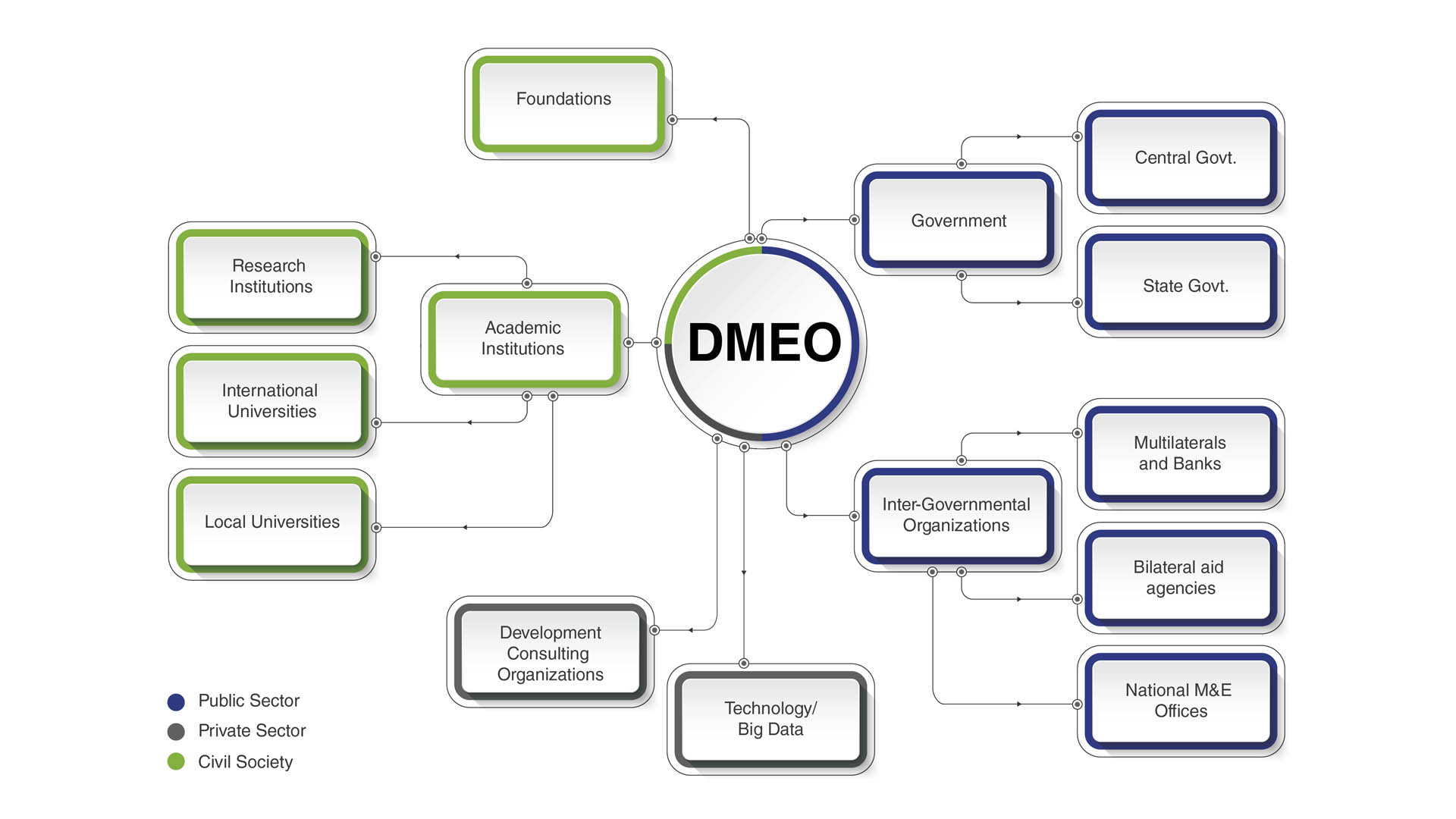The Development Monitoring and Evaluation Office is committed to raising the equilibrium of the monitoring and evaluation ecosystem in India. DMEO aims to act as a conduit for M&E knowledge and skills: learning from organizations in India and abroad and helping channel this learning towards Union Ministries, States and other external organizations.
The goals the office aims to achieve through partnerships include the following:
-
Building a strong M&E collaborative ecosystem in India consisting of government, academic institutions, civil society, and consulting industry
-
Meeting the M&E technical assistance needs of the Central and State Government and other stakeholders
-
Conducting needs assessments for evaluation, assessment or other M&E support, providing diagnostics, developing plans and systems to address the identified needs, and conducting flagship evaluation studies
-
Building capacity across the M&E ecosystem, including among pre-service and in-service civil servants at the Centre, State and local level; research organizations; universities, etc.
-
To balance academic rigor with the practical needs of policymakers and constraints of existing systems
Existing capacities in the external ecosystem can be leveraged and activated to undertake a greater depth and breadth of activities than DMEO can undertake by itself. DMEO aims to explore multi-stakeholder engagements involving organizations like funding partners, technical partners and researchers, technology and data partners, field partners etc.
A mapping of the types of partners DMEO is exploring potential collaborations with is given below.

Potential activities to be undertaken by DMEO along with its partners include:
-
Building practical M&E resources like guidelines, formats, tool kits and other knowledge products for identified stakeholders including NITI Aayog, Union Ministries and Departments, State government stakeholders etc.
-
Developing and augmenting M&E curriculum and capacity building courses, and assisting with conducting the training, for government and external stakeholders
-
Organizing joint courses, workshops, forums, seminars etc. in the field of M&E, including field evaluation experiences, case studies, research results etc.
-
Inviting affiliate researchers to conduct research or information sessions on topics of mutual interest or issues including evolving areas in the Indian policy space
-
Developing and connecting with networks of M&E professionals, evaluators, public policy practitioners, researchers etc. for knowledge-sharing, dissemination and collaboration
-
Participating in a knowledge network comprising of Centres of M&E Excellence (anchor institutions in each State) and sector-specific research institutions (providing in-depth sector expertise).
-
Conducting evaluation studies and assisting with the management of outsourced evaluations
-
Secondment of personnel to the DMEO office and hosting DMEO team members as fellows
-
Assistance with procurement and contracting of studies, including technical feedback on terms of reference, draft reports, communications material etc.
-
Assistance with the development of technological tools to facilitate data collection, analysis, visualization etc., to provide actionable insights to decision-makers
-
Providing access to primary/raw/big data sets in an anonymized form that prevents identification of individuals
 GOVERNMENT OF INDIA
GOVERNMENT OF INDIA